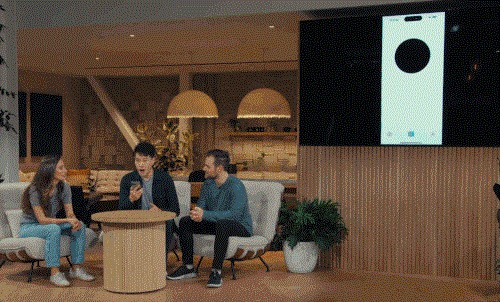On May 14th, OpenAI unveiled GPT-4o, an enhanced version of their already impressive GPT-4 language model, during their 2024 Spring Release event. The “o” in GPT-4o stands for “omni,” indicating its all-encompassing capabilities. This new model can process and generate text, audio, and images simultaneously, with a minimum response time of just 232 milliseconds, making it capable of engaging in real-time conversations with humans.
The release event, although brief and attended by only a few dozen people, showcased GPT-4o’s remarkable abilities through live demonstrations. These included comforting a nervous presenter, telling a bedtime story with interruptions, tutoring math, explaining code, and even providing real-time translations between Italian and English speakers.
The announcement that GPT-4o would be freely accessible to everyone was met with thunderous applause. However, this news has also raised concerns among Chinese professionals, particularly those in psychology, teaching, programming, and translation, who fear that AI may soon replace their jobs.

Chinese tech experts and industry observers have weighed in on the significance of GPT-4o’s release:
- Hu Yanping, Chief Expert at FutureLabs, believes that GPT-4o represents a significant step forward in intelligent interaction and will greatly expand the user base and application scenarios for AI.
- Zhang Xiaorong, Dean of the Deep Technology Research Institute, highlights GPT-4o’s improvements in multimodal understanding, real-time inference, voice interaction, security, and cost-effectiveness.
- Zhang Jinjing, Founder of BT Finance, sees GPT-4o as more of a commercial exploration than a technological advancement, aiming to establish a business model for OpenAI.
While some Chinese netizens express excitement about the potential of GPT-4o, others remain skeptical about its practical applications and long-term viability. The Chinese AI community, meanwhile, continues to focus on developing models that closely integrate with production and daily life, giving birth to innovations beyond imagination.
As the global AI race intensifies, with tech giants like Google and Microsoft scrambling to keep pace with OpenAI, China’s reaction to GPT-4o reflects a mix of curiosity, concern, and determination to forge its own path in the ever-evolving landscape of artificial intelligence.
References:
the Felicity Hughes Case Sparks Online Frenzy in China
The Changing Face of Singapore’s Nightlife: China’s Influence and the Post-Pandemic Shift
China’s “Singer 2024” Is Sparking a Revolution in the Music Industry
Shanghai Introduces Paid Toilet Seat Covers, 1000 Uses for 13.8 Million TimesSource


The release of GPT-4o is a game-changer in the world of AI, and its free accessibility will undoubtedly accelerate the adoption of AI in various industries.
As an educator, I’m intrigued by GPT-4o’s potential to revolutionize learning. Imagine having a personalized AI tutor that can adapt to each student’s needs and learning style.
GPT-4o’s ability to engage in real-time conversations is both impressive and unnerving. It blurs the line between human and machine interaction, raising philosophical questions about the nature of intelligence and consciousness.
I’m skeptical about the long-term viability of GPT-4o. While it’s undoubtedly impressive, I wonder if it will be able to sustain itself as a free service without a clear business model.
I’m worried about the ethical implications of GPT-4o. With its ability to generate convincing text and images, it could be used to create deepfakes and spread misinformation.
GPT-4o’s real-time inference and voice interaction features are particularly impressive. They could revolutionize customer service and virtual assistance.
As a translator, I’m both excited and nervous about GPT-4o’s real-time translation capabilities. While it could make my job easier, it may also make it obsolete.
The Chinese AI community’s focus on developing models that integrate with production and daily life is admirable. It shows a pragmatic approach to AI development that could lead to more tangible benefits for society.
GPT-4o’s ability to tell bedtime stories with interruptions is a delightful showcase of its adaptability and creativity. It hints at the potential for AI to enhance our daily lives in unexpected ways.
I’m curious to see how GPT-4o’s free accessibility will impact the business models of other AI companies. Will it force them to adopt similar strategies to remain competitive?
As an older reader, I’m amazed by how far AI technology has come in my lifetime. GPT-4o feels like a glimpse into a future where intelligent machines are an integral part of our lives.
GPT-4o’s security improvements are crucial, given the potential risks associated with advanced AI. I hope OpenAI continues to prioritize safety and ethics as they develop this technology further.
It’s really a nice and helpful piece of information. I am glad that you shared this helpful info with us. Please keep us informed like this. Thanks for sharing.
I have been absent for a while, but now I remember why I used to love this blog. Thank you, I will try and check back more frequently. How frequently you update your site?